Top Tips To Make The Most Out Of Your First Music Recording Sessions

After spending long hours composing and rehearsing with the band, there comes a time when you want to put a distinctive sound to your music and get it out for people to hear.
As a result, you’ll need to book a session in a professional recording studio to turn your musical creation into that masterpiece you have always wanted.
You have to be well-prepared beforehand and organized on the day of to get the best out of your studio session.
Your time spent at the studio must be used effectively and wisely if you want to maximize value from your recording budget.
Here are some great starting out tips you can use to help your music recording session be a complete success.
Make a list of things you need to record your album successfully

Every tremendous musical masterpiece begins with what you do in the music recording studio.
Get ready to record your album by making sure everyone in your band is all set and ready to go.
You can do this by reviewing how well-prepared your band is to perform the songs you have rehearsed.
You don’t want to waste precious recording studio time in fine-tuning or further rehearsing your songs.
The excitement of recording your song in a studio session can be quite exhilarating and it can be quite easy to lose track of time.
Many budding musicians are only familiar with recording songs with just a laptop in their bedroom or garage.
The thrill that comes with a proper recording session in a studio can be quite compelling for first-timers.
However, it helps a lot if you have a good idea of the instruments and effects you want to use to give you that desired sound.
From the mic to the mixing desk, you should understand what you truly want before you begin.
A producer can help you in making some of these artistic decisions if you so desire.
While it’s not a good idea to rely on a producer to call all the shots in the studio, having frequent discussions with your producer should greatly help your studio sessions.
Multi-track Recording
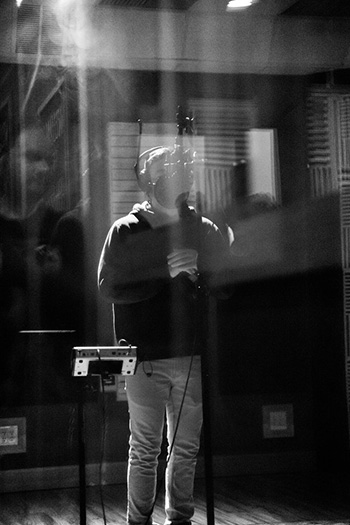
Recording songs in a studio have gone way beyond what it used to be in the beginning.
Back then, the studio would record an entire performance in just a single take using one or two mics.
These days, the process is more intricate and detailed as a more advanced system known as multi-track recording is used.
Multi-track recording allows the sound engineer to record each instrument individually and combine later via mixing.
The advantage of it is that engineers can refine the sound and volume of each instrument separately.
It also allows each instrument for a song to be recorded one at a time.
You are likely to do more than one take of a song if you are tracking parts.
For me, tackling entire songs per take is an excellent way of getting the right flow in producing a song.
Some producers can work with just two or three takes. There are times when you might fail to get a particular part right after several takes.
In such a situation, you can decide to re-record just that part to get an excellent recording.
For instance, if the guitarist makes a mistake, rather than re-recording the entire guitar part, the engineer would edit in and overwrite just the part where the mistake was made.
The process is seamless and only requires just a simple punch in and punch out of a track.
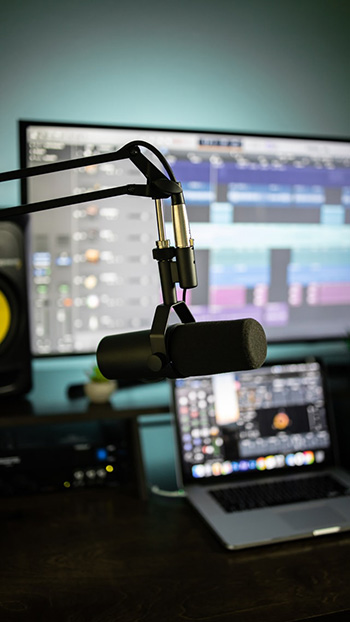
There can be situations when things get quite confusing and mixed up.
A band member’s microphone might pick up the guitarist's mistake in the recording, causing a leak into the mic.
Situations like this make it immensely more challenging to mix a recording later on.
One way of getting around this is to record each part separately.
The guitarists, drummer and vocalists should record each of their parts separately from one another. I would recommend you start with the drummer before moving on to other members of the band.
That way, it’s relatively easy for everyone to keep in time with the drum track whilst they record their part and to combine and mix later after recording.
Professional recording studios can help you handle these different processes with ease.
Furthermore, multi-tracking gives room for flexibility and overdubbing in the recording.
Different musicians can even record their separate parts in different locations before it is combined later.
Depending on the sound engineer, you may need to do several takes until you are both satisfied with the quality.
However, you must understand the need for proper studio time management.
You do not want to spend unnecessarily long hours repeating takes in your studio recording sessions.
More time spent in the music recording studio translates into more expensive production costs.
The Mixing Process
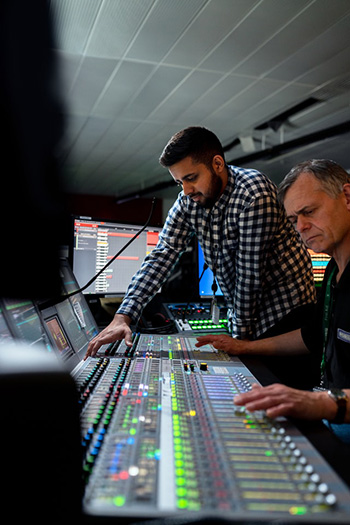
Mixing is the process of using different tools such as compressors, volume faders, reverbs, and EQ to make your recording sound refined and balanced.
The objective of the mixing process is to produce a clear, balanced and well-polished song. Just after the main recording is completed, mixing is the next primary step in music production.
Mixing is widely considered the most critical part of music production. It determines, to a large extent, how good your music sounds. Your mixing engineer may want your creative input in the mixing sessions.
Nonetheless, you do not have to be present during mixing.
You must learn to make judicious use of your time in the music recording studio.
For instance, the sound engineer may want you to assess the mixes to your songs.
While you must listen to it and point out the adjustments you want to have, you don't want to dwell too long on insignificant elements that may not have a noticeable effect on your recording.
Mixing is a critical aspect of music production.
Apart from helping to shape your recording's sound, mixing helps in the musicality and improves the general quality of your recording.
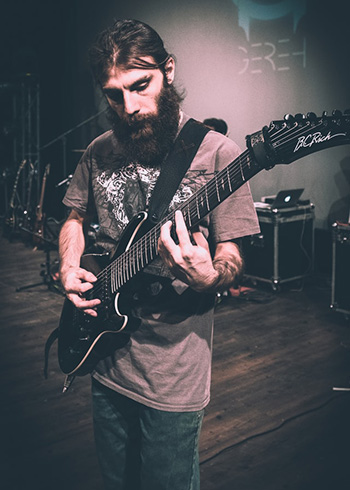
Make sure you are entirely satisfied with the mixing process before moving to the mastering phase of music production.
You do not want a situation where you have to go back to make changes you should have noticed earlier in the mixing process.
Always remember that time is of the essence, and it has a significant role in your music recording sessions.
Mastering
The final step in music production is mastering.
The idea behind mastering is to ensure your recording sounds balanced and professional.
It is the final stage just before commercial release, streaming, radio play, or downloads.
Some music recording studios have an arrangement that allows the producer to master your mixes.
For others, you will need to take the mixes to a separate professional recording studio for mastering.
The mix is handed to the mastering engineer, whose job it is to listen and adjust the song's volume and balance.
In some cases, the mixing engineer may choose to include post-production effects to the song or add more compression.
One advantage of having a different person mix and master your song is that you have a fresh person listening to the sound and they may notice if something is amiss in the mixing process.
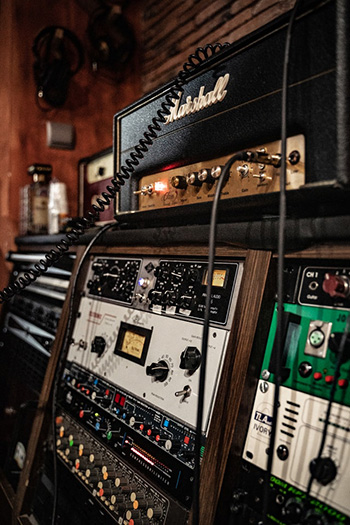
Mastering puts a final wrap to your music.
There are several factors you must consider before picking a studio to master your mix.
One thing you need to ask for is examples of their previous projects.
Taking a quick look at their past jobs will give you a good idea of how well they could refine and make your mix sound cohesive.
Professional recording studios always have an archive of their past jobs.
You have to ensure their technique of mastering is in sync with your expected outcome.
Furthermore, your budget for the recording project plays a significant role in the mastering studio you choose.
You must consider the affordability of the mastering session if you are working on a tight budget.
A mastering service like LANDR is a sound choice if you desire quality mastering but you’re constrained by funds or skill.
They offer automated instant mastering services for a reasonable cost.
Five Ways to Get the Most of Your Recording Sessions
Music recording has continued to evolve.
We have moved past the era of recording with tapes to the use of sophisticated gadgets that produce music at its finest.

Whether you are recording in a small scale digital only studio or a large console format studio, here are some tips to get the most of your recording sessions.
1. Have a realistic budget
A budget helps to guide you on how much you should spend to get your music ready for the listener's consumption.
Ensure you stick strictly to your budget as it gives you a fixed limit of how much you are committing to the project.
Recording your song is not all there is in the costs of your project.
music-libraryUse a budget to track how much you will be spending on recording your song and the other essential steps needed to produce a successful music album.
2. Listen to your demos before recording
Before recording your song in the studio, you must listen to your demos with a keen ear to know exactly how it sounds before your studio recording session.
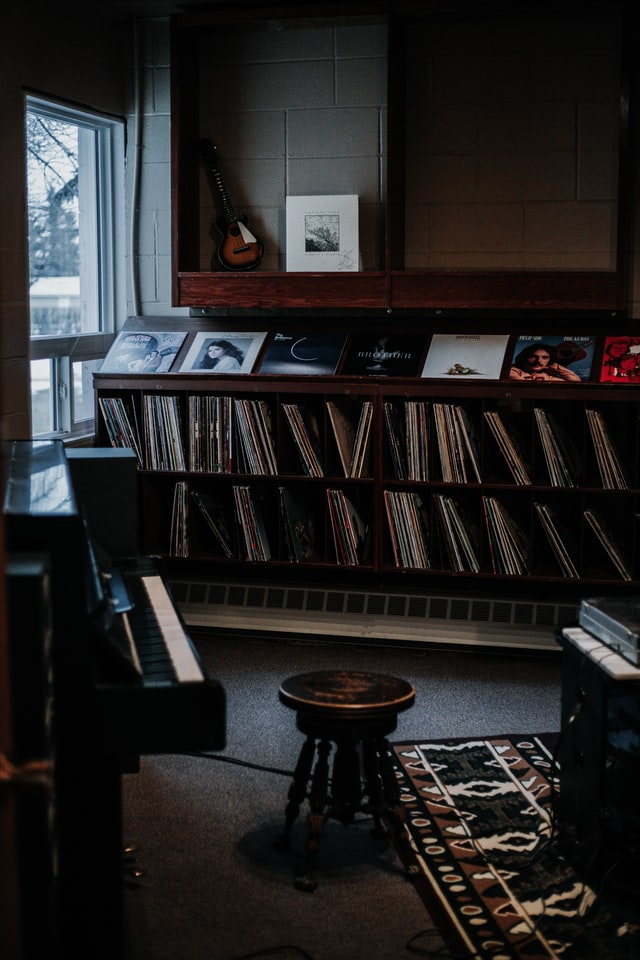
Doing this allows you to highlight areas you suspect to be lacking in the desired quality or depth.
Once you map out the missing essential details in your demo, you have made your job much easier when you begin recording for real.
3. Prepare for the task ahead
Making the most of your studio time entails preparing you and your band members for the task ahead.
It will help if you have regular, productive conversations with the other band members, your producer, and even your sound engineer regarding the direction you want to take with your project.
You can also familiarize yourself with past recordings created in the studio to have a clear picture of what to expect.
Lastly, ensure you know which instruments are available in the studio to set you in the groove for your recording session.
4. Do not undermine the benefits of rehearsal
Some of the best studio recordings come as a result of constant practice beforehand.
One of the best ways to maximize the value of your studio time is by having fewer takes during your recording session.
Less takes during your recording translate to less time in the studio and, by extension, reduced studio costs.

Studio recording sessions can be quite draining.
With adequate preparation and rehearsal, you can get yourself and your band fully prepared for the task ahead.
Most professional recording studios have everything you need to record a resounding musical masterpiece.
Frequent rehearsals before the recording event will make your studio session more fulfilling.
5. Avoid every form of distraction in your recording session
Musicians love to socialize and mingle; it’s part of show business.
It’s quite common to see musicians turning their studio recording sessions into some kind of circus.
Recording songs in a professional recording studio is a serious business and you should avoid anything that undermines your professionalism.
Music recording studios should be a place where you produce magic with your songs.
Once you have everything sorted, then you can enjoy your songs blaring from speakers over a couple of drinks with your friends in the basement or a bar.
Final Thoughts
Having the best time in your recording session is one of the most exciting parts of being a musician.
Observing these tips will not only guarantee you a rewarding time in the music recording studio but also a memorable and fun-filled experience.
Contact us today to book a professional recording studio to bring your musical ideas and creations into reality.




